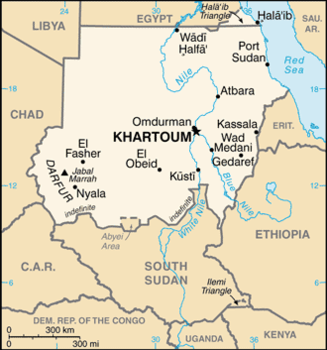Following one of the worst measles outbreaks in Sudan’s recent history, the Ministry of Health with support from UNICEF, the Measles and Rubella Initiative (M&RI) and national partners, is launching a massive campaign to immunize 7.9 million children aged six months to 15 years against this life-threatening disease.

Since the start of the outbreak at the end of 2014, there have been 1,730 confirmed cases, 3,175 suspected cases and 22 fatalities. West Darfur remains the worst affected state, with 441 confirmed cases and five deaths. Kassala has had 365 confirmed cases and five deaths, while in Red Sea state there have been 263 cases and four deaths.
“Measles is a life threatening disease but one that can easily be prevented with timely immunization,” said Geert Cappelaere, UNICEF Representative in Sudan. “Every girl and boy must be reached no matter where they live. There are no excuses and no child can be left out.”
The campaign, which launches today will initially target 28 affected localities in six of the highest risk states, before expanding to other areas identified as being at risk of an outbreak. In total it will target 96 localities in 16 affected and “at risk” states.
The immunization campaign will be a complex operation, however, as ongoing conflict in some areas of Sudan could restrict humanitarian access. There are children in conflict zones in the Kordofans, Blue Nile and Darfur who have not received routine immunization since 2011. UNICEF has called on all parties to the fighting to facilitate humanitarian access so that these children can be reached.
Children are most at risk of the disease – children who are malnourished are even more vulnerable. In Sudan, some 36 per cent of children are stunted and the country has one of the highest levels of malnutrition in Africa. Of the total number of reported measles cases in Sudan, 69 per cent are below 15 years of age, including 52 per cent under the age of five. For malnourished children measles can cause serious complications, including blindness, ear infections, pneumonia and severe diarrhoea.
The upcoming campaign is expected to cost approximately US $13.9 million – funds that are needed to procure 9.6 million doses of vaccine, logistics, measles case management and activating social networks in communities to ensure local buy-in. UNICEF is appealing to all donors to make funding available to fight the outbreak, which is having a detrimental effect on the lives of children across Sudan and threatens neighboring countries. UNICEF, WHO and partners are coordinating with surrounding countries to stop this outbreak from crossing borders.
The measles virus is spread by respiratory transmission and is highly contagious. Up to 90 per cent of people without immunity who are sharing a house with an infected person will catch it.


One thought on “Sudan: Measles outbreak prompts mass vaccination campaign”